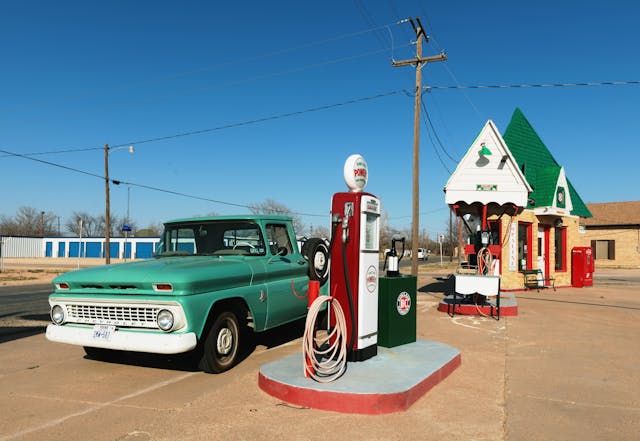In a world increasingly sensitive to the environmental impact of human activity, the automobile industry stands at the frontline of the transformation towards a greener, cleaner future. However, recent headlines reveal that not all industry players adhere to the stringent emissions standards designed to protect our air quality and public health.
Dieselgate Revisited
The scandal, reminiscent of the infamous Dieselgate in 2015, has once again unearthed industry malpractice that could have far-reaching implications for the environment and public welfare. This time, the transgression involves the sale of ‘defeat devices’. The profound deception at play leaves a trail of clandestine pollutants in our communities and a cloud of mistrust hanging over the auto industry. But what exactly are defeat devices, and why should we care?
Defeat devices are systems that alter the performance of a vehicle’s emissions control system during normal driving conditions to improve performance or fuel economy at the expense of higher emissions. By surreptitiously reducing the efficiency of emission control, these devices allow vehicles to produce pollutants far above the legal limits. The discovery of these devices promptly exposed actual Volkswagen emissions, which were found to be over 40 times the legal limit.
In the aftermath of Dieselgate, the use of such devices has been a major focus for environmental authorities and regulators worldwide. The implications are severe, not just in terms of the environmental impact but also for public health, as vehicle emissions are a significant contributor to air pollution and respiratory illnesses.
Unpacking the Detroit Scenario
Nicholas Piccolo, owner of Orion Diesel LLC and Diesel Ops LLC, was fined around £1.18 million in August 2022 by a Detroit federal district court for violating EPA regulations regarding diesel emissions. The fines were imposed due to Piccolo’s obstruction of federal requests and his attempt to conceal assets after receiving EPA violation notices.
In 2018, the EPA directed Piccolo to stop producing, selling, and installing parts that elude emission controls. However, Diesel Ops and Orion Diesel continued to sell ‘delete kits’ for Dodge Cummins and Ford Powerstroke engines. After facing inquiries and violation notices from the EPA, Diesel Ops transferred assets worth nearly £791,908.50 online to Piccolo in an alleged attempt to hide the funds.
In December, the U.S. Justice Department filed a complaint seeking a default judgment against Piccolo and his companies, which was granted by U.S. District Judge Denise Page Hood on August 29 in Detroit District Court. The judgment includes a clause restricting Piccolo from engaging in selling or installing such equipment in the future.
The £18.08 million fine levied against the Detroit companies is a significant penalty, but some critics argue that it’s not enough to deter future transgressions, especially given the profits that may have been made through the sale of these defeat devices. The cost, they contend, should reflect not just the damage done but the potential harm averted. This would mean a financial consequence that incentivizes scrupulousness in the industry, ensuring that such flagrant disregard for the law does not repeat itself.
The Consequences of Fudged Emissions
Fudging emissions not only violates laws meant to safeguard the public and the environment, but it also disrupts the market by giving dishonest manufacturers an unfair advantage. Legitimate automotive companies that invest in genuine emission-reducing technology and practices are undercut, and consumers are misled into believing they are making eco-friendly choices.
The financial penalty is but one aspect of the repercussions that the guilty parties face. Environmentally, the cost could be unquantifiable. NOx pollution contributes to a host of environmental issues, from acid rain and algae blooms to groundwater contamination. Furthermore, the breach of trust risks eroding the public’s confidence in environmental regulations and the auto industry’s commitment to compliance and corporate responsibility.
The Role of Regulators and the Public
To protect the integrity of our regulatory systems and the well-being of our communities, robust enforcement of existing laws and the creation of more stringent regulations may be necessary. Regulators must ensure that fines and penalties are commensurate with the societal impact of the violations, acting as both a deterrent and a redress.
In the public arena, education, and advocacy are equally essential. Consumers should be aware of the potential for deceit and take an active role in championing transparency within the auto market by filing a diesel emissions claim on Claimexperts.co.uk. Furthermore, we must foster a culture that values corporate accountability and ethical practices, sending a clear message that the public will not stand for deception in the name of profit.
The episode serves as an urgent reminder that the road to a sustainable future is paved with more than good intentions; it requires unwavering commitment and clear-sighted regulation. While the actions of a few may tarnish the industry’s reputation, they also present an opportunity for the auto sector to steer toward a future where clean, efficient, and ethical practices are the norm.







